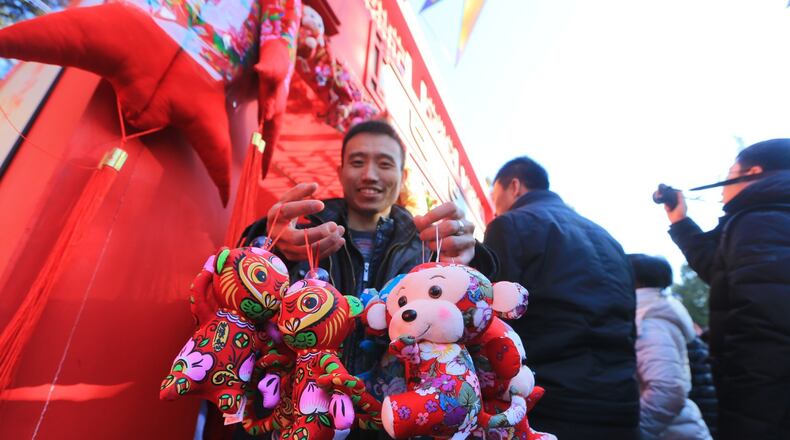- Passengers capture moment cruise ship is pummeled by 30-foot waves
- High schoolers with same last name set record straight with sarcastic yearbook message
- Michigan father dives into icy lake to save son, both die
- Report: Doctors perform procedure on wrong baby
- Man may have been killed by meteorite, Indian official says
While Jan 1. marks the new year for most of the world, Chinese citizens often celebrate the Chinese Lunar New Year, the turn of the traditional lunisolar Chinese calendar, a month or more later.
The holiday, which falls at the beginning of the new moon closest to the beginning of spring, honors ancestors and encourages people to prepare for good fortune to come in the next year.
China, which officially operates on the international Gregorian calendar, celebrates Jan. 1 as the first day of the calendar year, but the Chinese New Year is celebrated much more enthusiastically.
This year, people rang in the Year of the Monkey, a year expected to bring energy, happiness and courage and in which babies will be born with intelligent, witty, curious and playful qualities.
Celebrations Monday took place not only in China but also in Vietnam, Korea, Australia, London and New York, where public schools were closed for the day.
It's a year that the Chinese government is allowing families to produce two children instead of its previous limit of one child per family. A baby boom is likely with many families saying a baby born during the Year of the Monkey is favored. Last year's Year of the Sheep was said to produce more timid and weaker children.
Each Chinese new year, also called the Spring Festival, is characterized by one of 12 animals that appear in the Chinese zodiac. Other animals include the dog, the rooster, the pig, the tiger, the rabbit, the dragon, the rat, the ox, the snake and the horse. The Year of the Monkey, which comes every 12 years, will last until Jan. 27, 2017.
About the Author
The Latest
Featured


